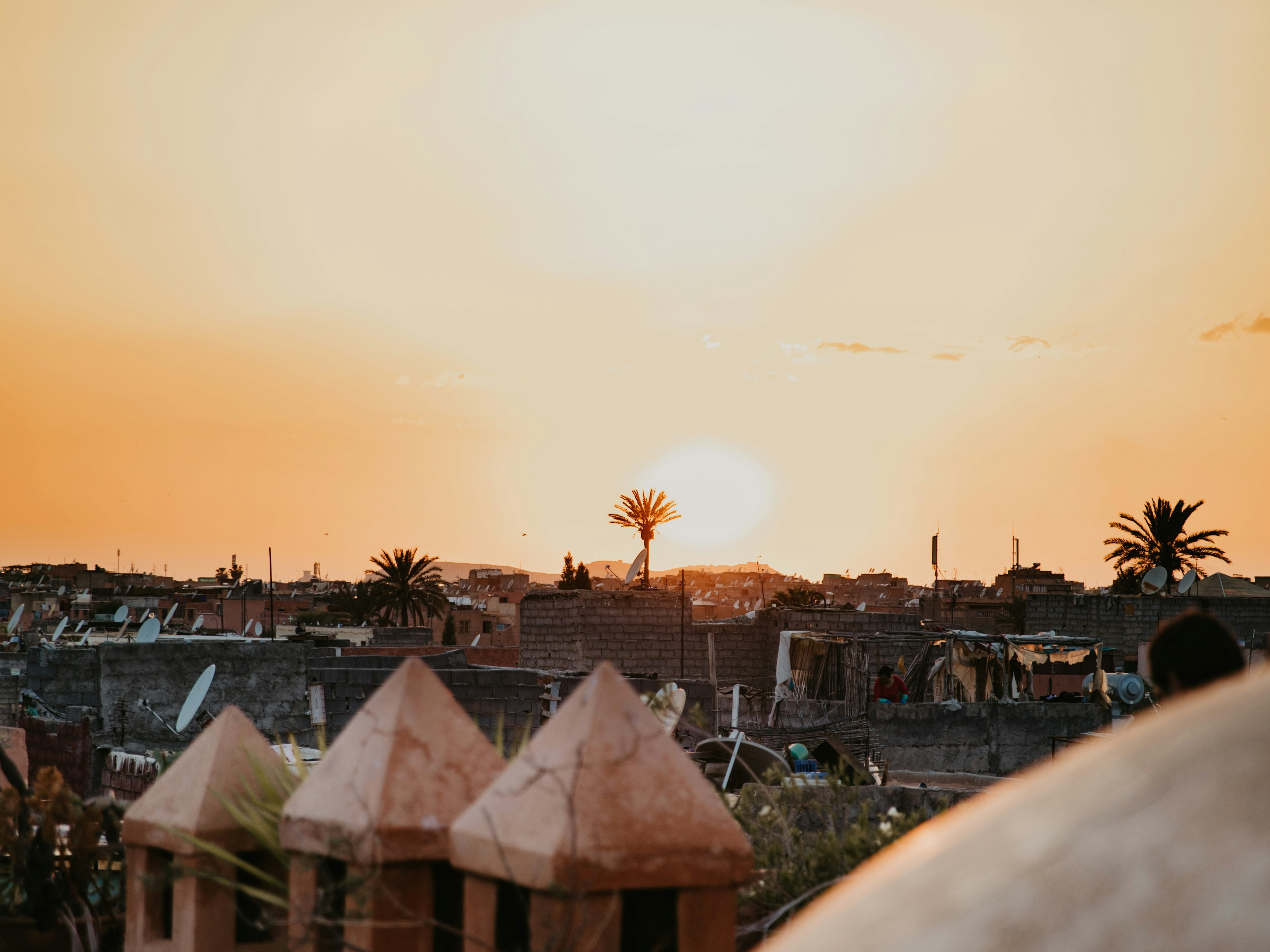
With its vibrant allure, Morocco beckons travelers from around the world. And in 2024, with travelers exceptionally hungry for adventure, that allure is stronger than ever.
“We’re seeing a ton of interest for travel to Morocco,” Henley Vazquez, Fora’s Co-Founder, said. “It’s a country that offers adventure, culture, luxury, incredible food and so much more. It’s the kind of place that has a new story around every corner, and travelers are loving it.”
But despite Morocco’s appeal, there are several misconceptions associated with traveling to this destination, from questions about the country’s safety to pigeonholing it as a ‘go once’ destination.
“When I told family and friends I was going to Morocco, I was told it wasn't safe and the country probably would be a mess after the earthquake,” Fora Advisor Martha Pearlstone said of her recent trip. “They couldn't have been more wrong!”
Below, we’ve written about eight of the most common misconceptions on travel to Morocco, thanks to insight from Hicham Mhammedi Alaoui, the co-founder of Experience Morocco, one of Fora’s local partners. Plus, we break down what it’s actually like to travel to this beautiful country.
When you’re ready to travel, reach out to Fora to start planning your Morocco journey today.
Misconception #1: Morocco cannot be visited safely
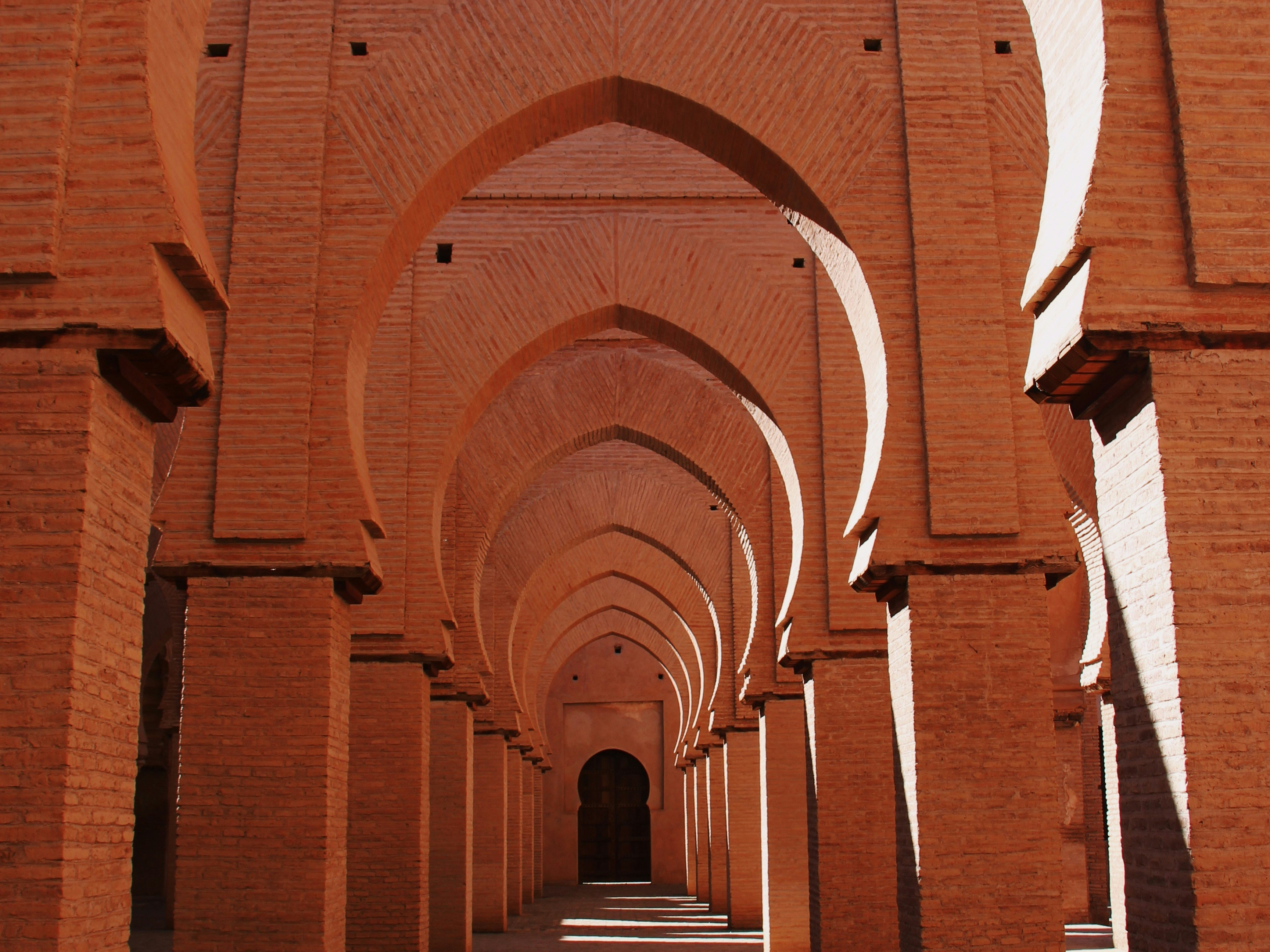
The truth: Safety precautions should be followed (just as visiting any country), but you can totally plan a safe trip to Morocco, especially with insight from locals.
Some prospective travelers express concerns over the country’s safety, especially after the earthquake last year that struck the Atlas Mountains. While the local area was impacted and continues to rebuild, the rest of the country remains safe and unaffected.
“There is a lot of misunderstanding and incorrect assessment [about the earthquake],” said Hicham. “Outside of a very small, remote part of the country, the rest of the country was back up and running within two weeks [of the earthquake].”
It’s worth noting that earthquakes are not common in Morocco. Prior to the one in 2023, the last major one was in the 1960s.
“I've grown up in Morocco my whole life. I'd never known an earthquake in Morocco until now,” Hicham said. “It is not something that happens with any kind of regularity.”
With the Atlas Mountains in the process of rebuilding, now is a great time to go to support these efforts.
“The single best thing you can do to help the country right now is to come visit,” said Hicham.
Misconception #2: You shouldn’t go to Morocco if you are LGBTQ+ or traveling solo as a woman
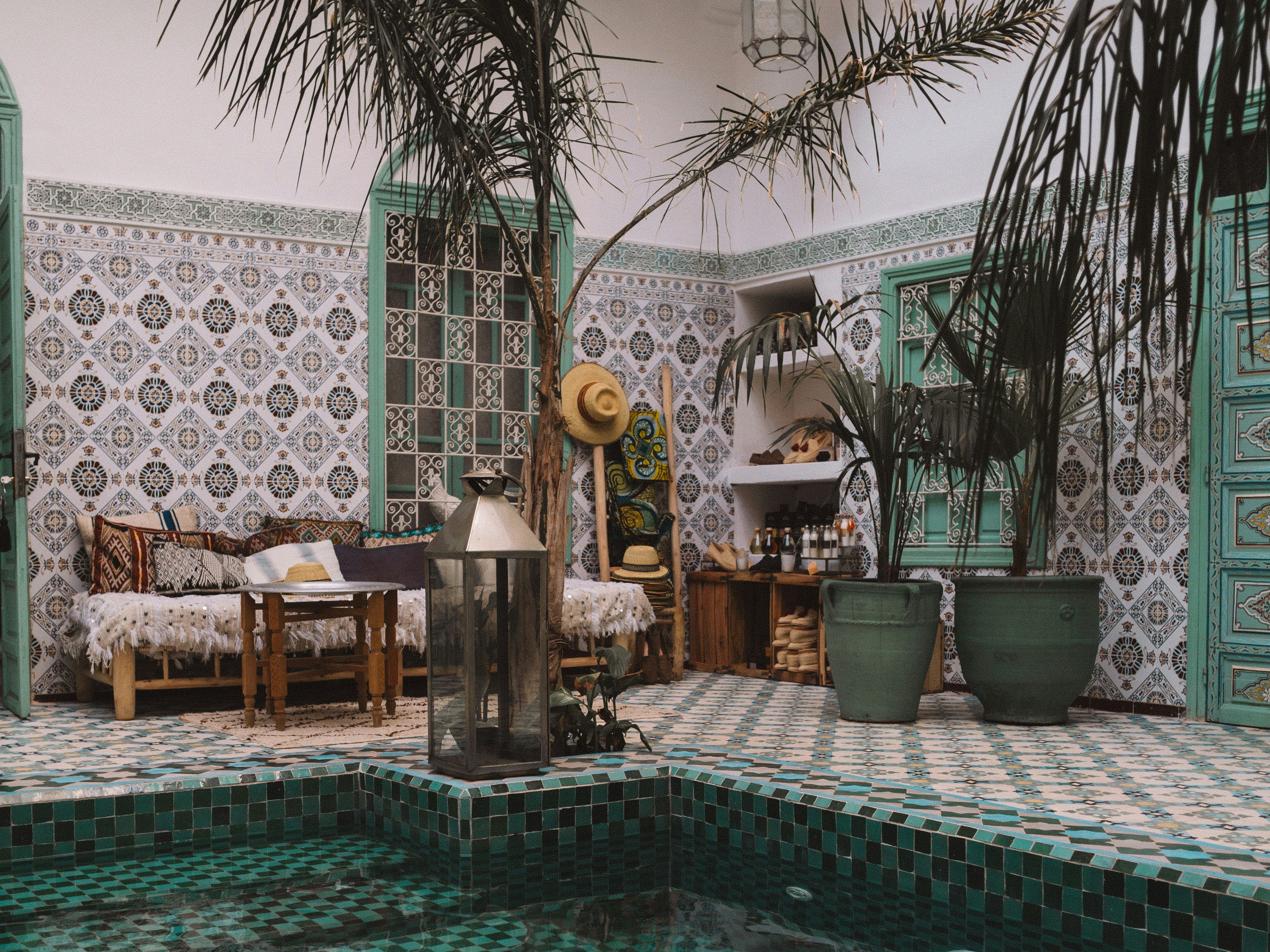
The truth: Morocco is welcoming of travelers from many types of backgrounds.
Many people raise questions about LGBTQ+ travelers visiting Morocco. (Same-sex relationships are illegal in the country). But with the right partners and planning, Morocco can indeed be explored & enjoyed safely — including for those who identify as LGBTQ+.
“If you travel with a local partner that is sensitive to LGBTQ+ clients, then the answer is absolutely, you will feel safe,” said Hicham.
It’s worth noting that while Morocco is considered an open society, public displays of affection are limited for everyone — not just those in the LGBTQ+ community.
“Hugs, holding hands and a kiss on the cheek are fine. But a smack on the lips is not something you would see, so we advise travelers to be mindful (regardless of their sexual orientation),” Hicham said, explaining that it’s always best practice to be respectful of the local culture.
For solo female travelers, concerns are typically rooted in safety.
“When you're with a local guide, the whole situation changes,” explained Hicham. “There's a lot that goes on behind the scenes in terms of having the right team of drivers, guides and hotel providers who are able to cater to our clientele to make sure you are safe.”
Henley agreed with Hicham’s sentiments.
“When I was there, I was walking to and from the conference I was at, and while I was alone, I never had any discomfort,” she said. “With the right planning and local tips, I felt just as safe as I do at home in the States.”
Misconception #3: The shopping is great everywhere
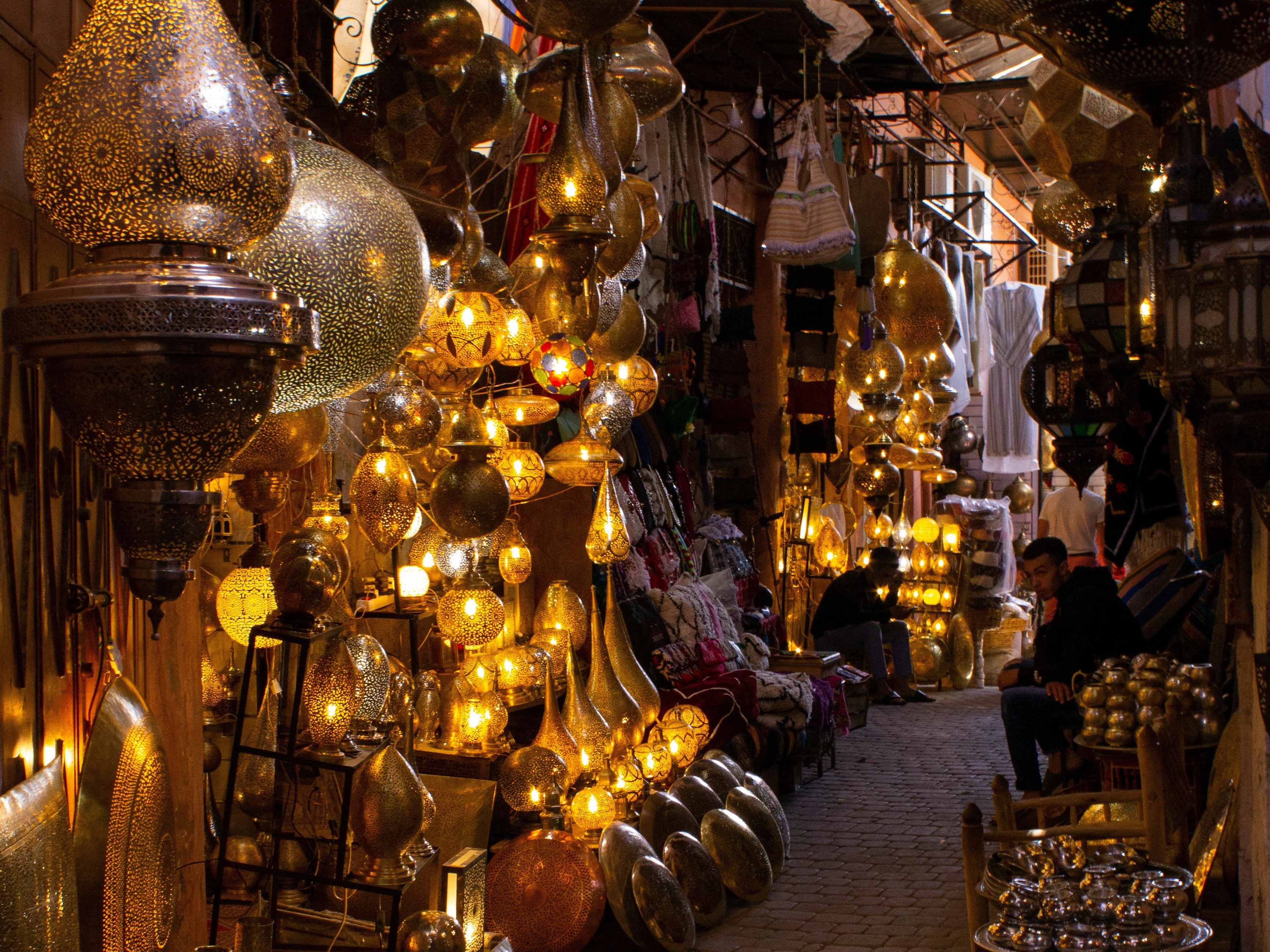
The truth: This one is a bit of a “gotcha,” because it’s true: the shopping is great across the country. But if you have specific wish list items, you should know where to go to get the highest quality.
It’s no secret that Morocco is a destination for shopping. From carpets to caftans, the country is chock-full of treasures. (Pro-tip: Some travelers even bring an extra suitcase).
However, many travelers assume that they can find exactly what they’re looking for anywhere. But for the savvy shopper, you should go to the country with an idea of what you want to buy — and where.
For instance, for rugs and brass goods, go to Marrakech. If you’re looking for ceramics, know that each city has its own style and color of wares, so you’ll need to get strategic about where to buy them if you have a particular color palette in mind. If argan is on your list, look for a women’s co-op for the highest quality product (plus, it helps to support economic equality for women in the region).
A local guide is an incredible asset for shopping in Morocco. The best tour guides know the top places to escort travelers based on their specific needs. You should have a shopping list in mind to share with your guide — especially if you’re visiting multiple destinations in Morocco. They’re also a good sounding board to understand which items are high-quality. Remember, you’ll be haggling, too, so your guide can help you negotiate for a fair price.
Misconception #4: The country lacks religious diversity
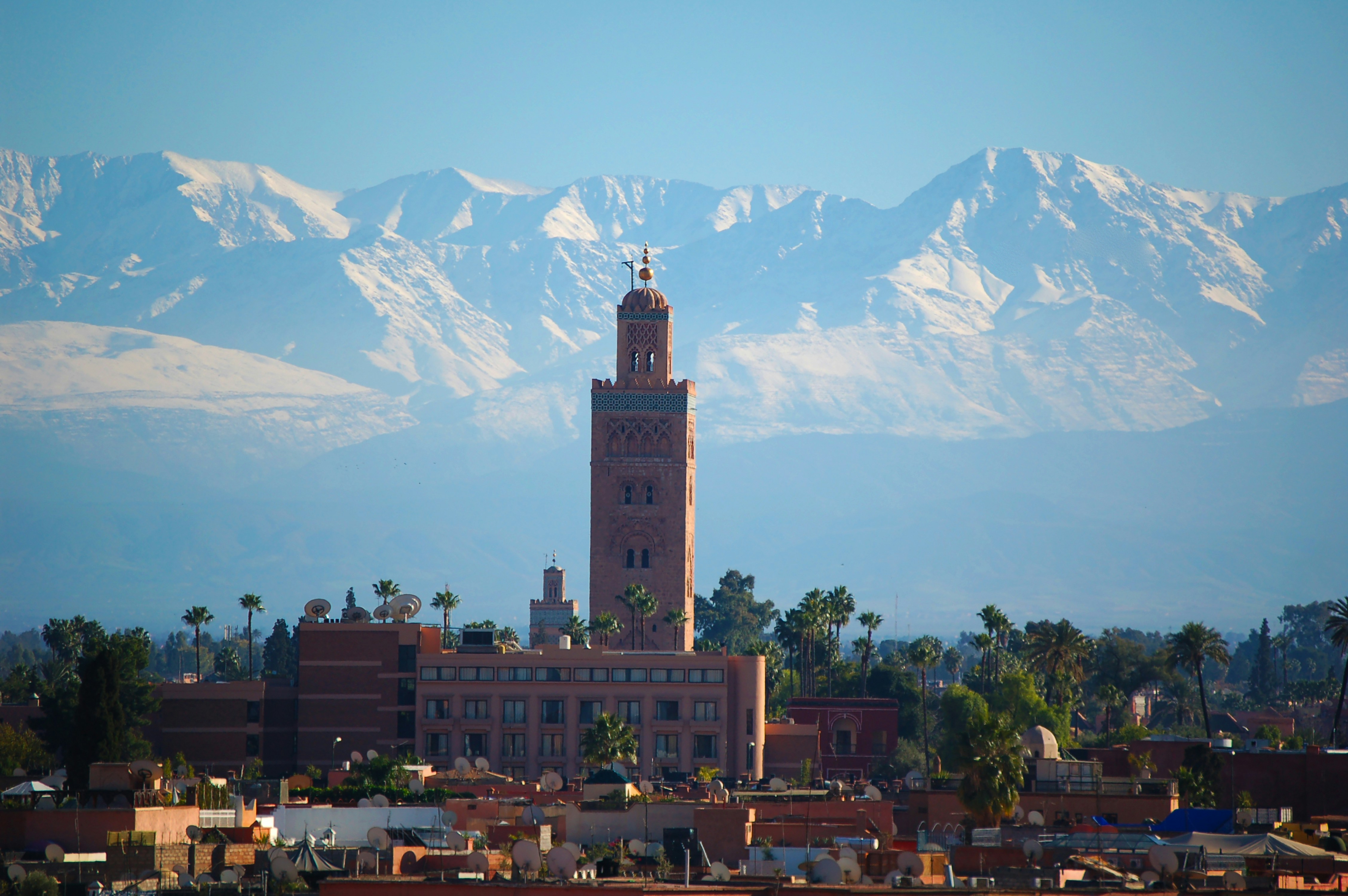
The truth: The main religion in Morocco is Muslim, but the culture is very welcoming to a diverse range of practices.
While Morocco is a predominantly a Muslim country, the strong presence of several other religions and cultural groups (including Jewish, Christian and Amazigh, the local Indigenous community) add to its vibrant cultural tapestry. One of Morocco’s hallmarks is its beautiful confluence of cultures — its historic elements range from Mediterranean to Phoenician to Moorish — which makes Morocco a truly unique destination to visit. Plus, with strong religious presences beyond Islam, it’s not uncommon to see multiple religious symbols intermingling, like a doorway marked with writings of both the Torah and the Qur'an.
“The coexistence within the diverse cultures of the country was warming to the soul," said Fora Advisor Alexandra Shea of her recent trip.
This intermingling also makes Morocco a welcoming destination for travelers of different religions.
“As a Jewish traveler for my first time in an Arab/Muslim-majority country, I was overwhelmed with the warm welcome, kindness and inclusivity offered to Jews in Morocco,” said a Fora Advisor who recently visited Morocco. “Our guides offered anecdotes with cultural significance which included stories of the Jewish people there. We were taken to synagogues and even learned that one of the gold balls atop the mosque’s minarets are to signify the brotherhood between Islam and Judaism. I felt incredibly safe, in fact, safer in Morocco than in the States. I would encourage all Jewish travelers to visit Morocco."
Misconception #5: Morocco is a destination to visit only once
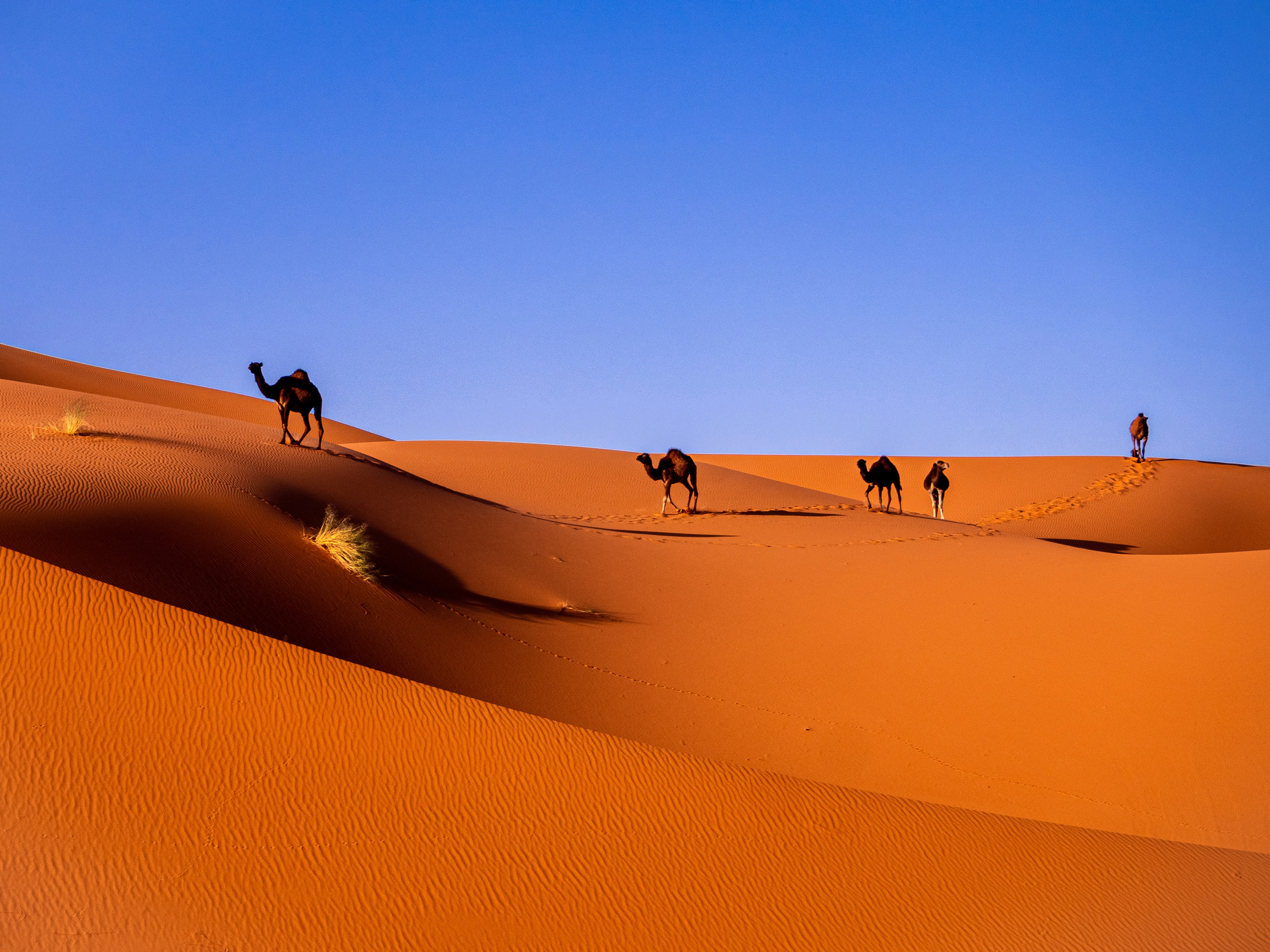
The Sahara Desert
The truth: Go back. Again and again.
We often hear Morocco used in the same sentence as phrases like “bucket list” and “far-flung.” And while Morocco is a destination that we recommend everyone check off their bucket list, it’s also a place to return to more than once. (And it’s not exactly far-flung, either; like most of Europe, a direct flight to Morocco is only six hours from NYC.)
“Everyone leaves Morocco feeling like there's so much left of the country that they haven't seen yet,” said Hicham.
Many travelers will explore Marrakech, Fes and the Atlas Mountains during a first-time visit (some of whom opt to only visit Marrakech). But there’s so much more to see. For instance, Tangier is a cosmopolitan mix of African and European history; the Sahara desert is a mind-blowingly gorgeous landscape to experience; and Essaouira, with its boho-chic vibes and epic coastal scenery, is visited by only 10-15 percent of travelers, according to Hicham.
Plus, Morocco is gearing up for an exciting 2024 and beyond, and building infrastructure (including high-speed trains) to make it easier than ever to get around. And the country is hosting the World Cup in 2030, which will only increase Morocco’s appeal.
Misconception #6: Visitors have to dress super conservatively when visiting Morocco
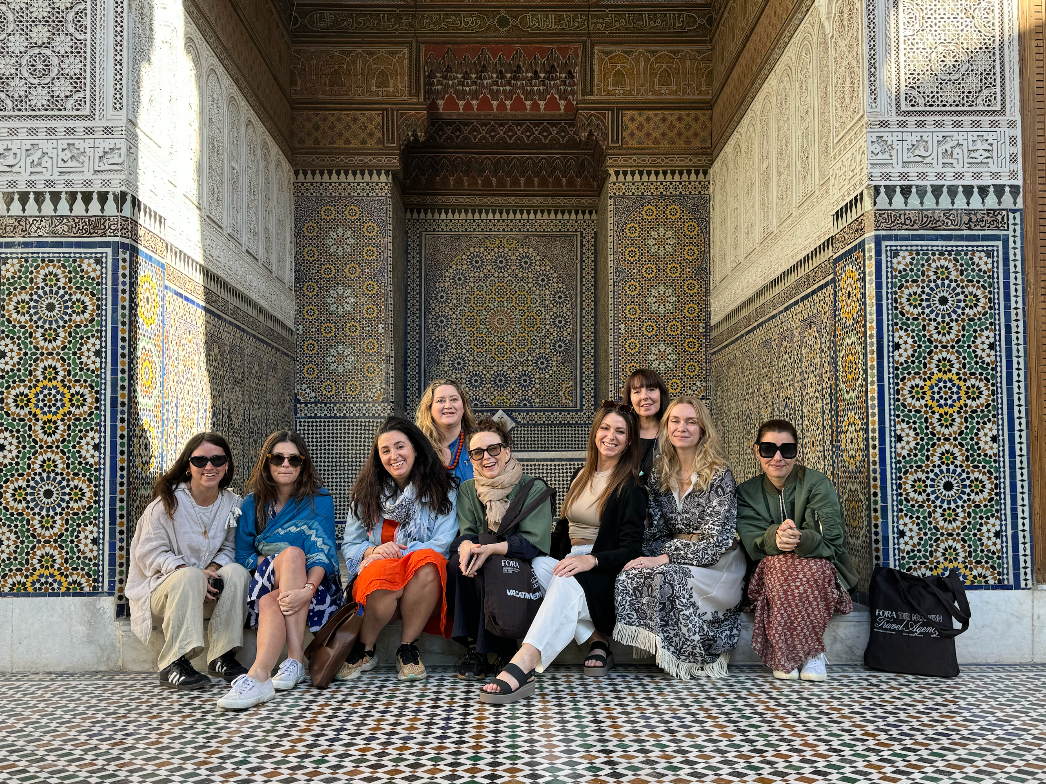
Fora Advisors on a recent FAM trip to Morocco
The truth: You should always be respectful of local culture when visiting another country, but the overall dress code is relatively lax in Morocco.
“We often host people who only pack pants and long shirts, and then they are surprised to see that women are walking around in shorts and T-shirts,” Hicham said.
There are very few cases where visitors are expected to cover their shoulders, but in general, Morocco is a country wherein travelers can dress however they like.
While some Moroccan women do wear extensive coverings, “you’ll also see people dressed like they could be in Paris or New York,” added Hicham.
Our two cents? Make sure to pack a lightweight scarf to cover up, especially if you visit any areas that are religious. Otherwise, dress comfortably in a way that feels respectful as well.
Misconception #7: Morocco is not a destination for wine
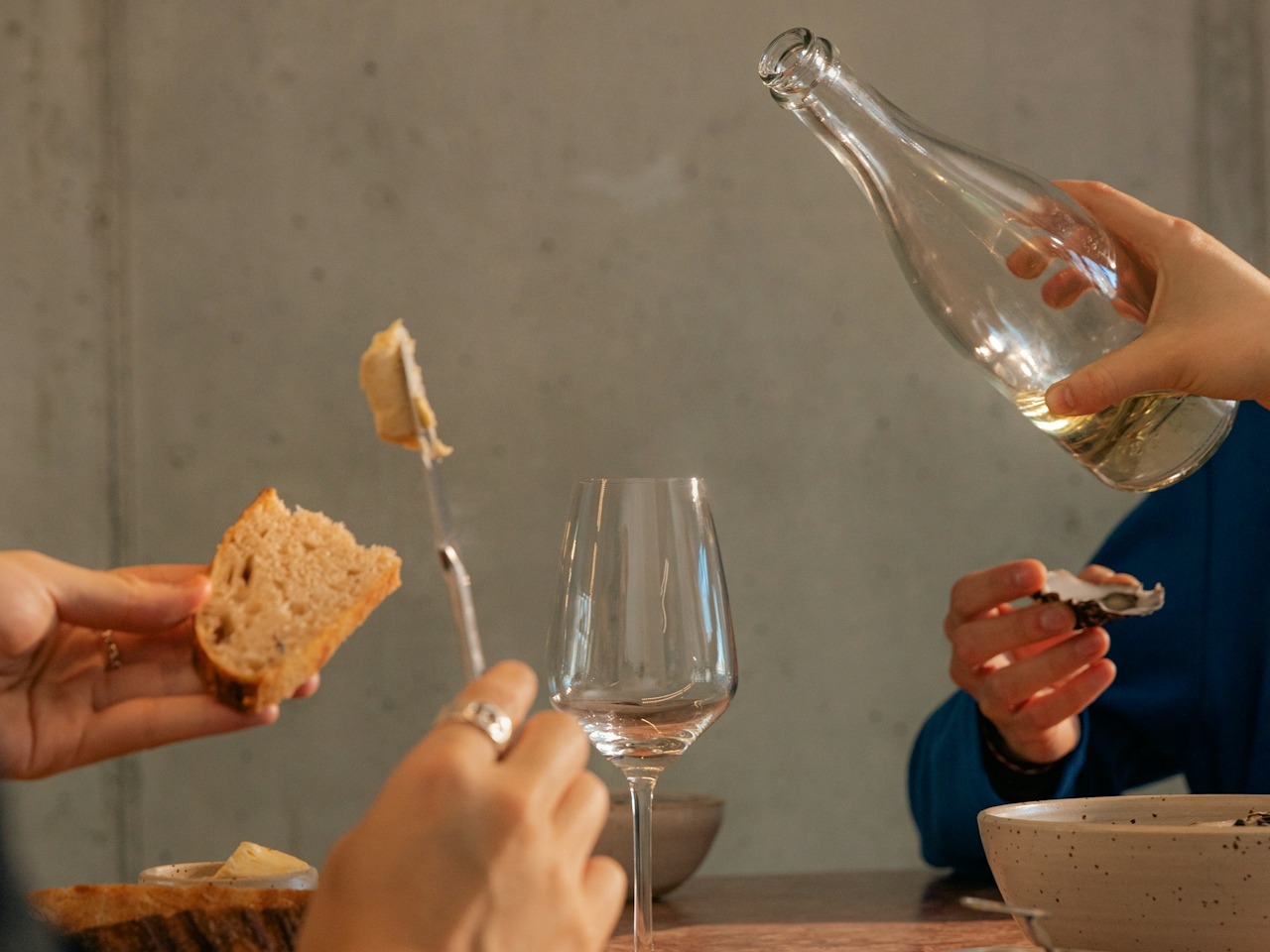
The truth: Morocco is an emerging destination for vino-lovers (and other purveyors of alcohol).
Contrary to popular belief, Morocco boasts a burgeoning wine scene that’s gaining attention from oenophiles worldwide.
It’s worth noting that the drinking culture varies from city to city. For example, Marrakech has a more modern approach (meaning alcohol is readily available), but cities like Fes and Essaouira, steeped in tradition, have different norms. It's also not uncommon to find areas within a certain proximity of mosques where alcohol is not served out of respect. (One such place is the Four Seasons Casablanca, which falls within the “dry radius” around the mosque.)
Still, Morocco's wine industry is experiencing a renaissance, with a strong focus on biodynamic practices that are challenging traditional wine standards. One standout winery is Domaines du Val d’Argan, owned by a Frenchman who has lived in Morocco since the 90s and is married to a Moroccan woman. This winery exclusively produces organic wines, using stainless steel fermentation to craft around 300,000 bottles annually, primarily for the Moroccan market.
Misconception #8: Morocco is not a family-friendly destination
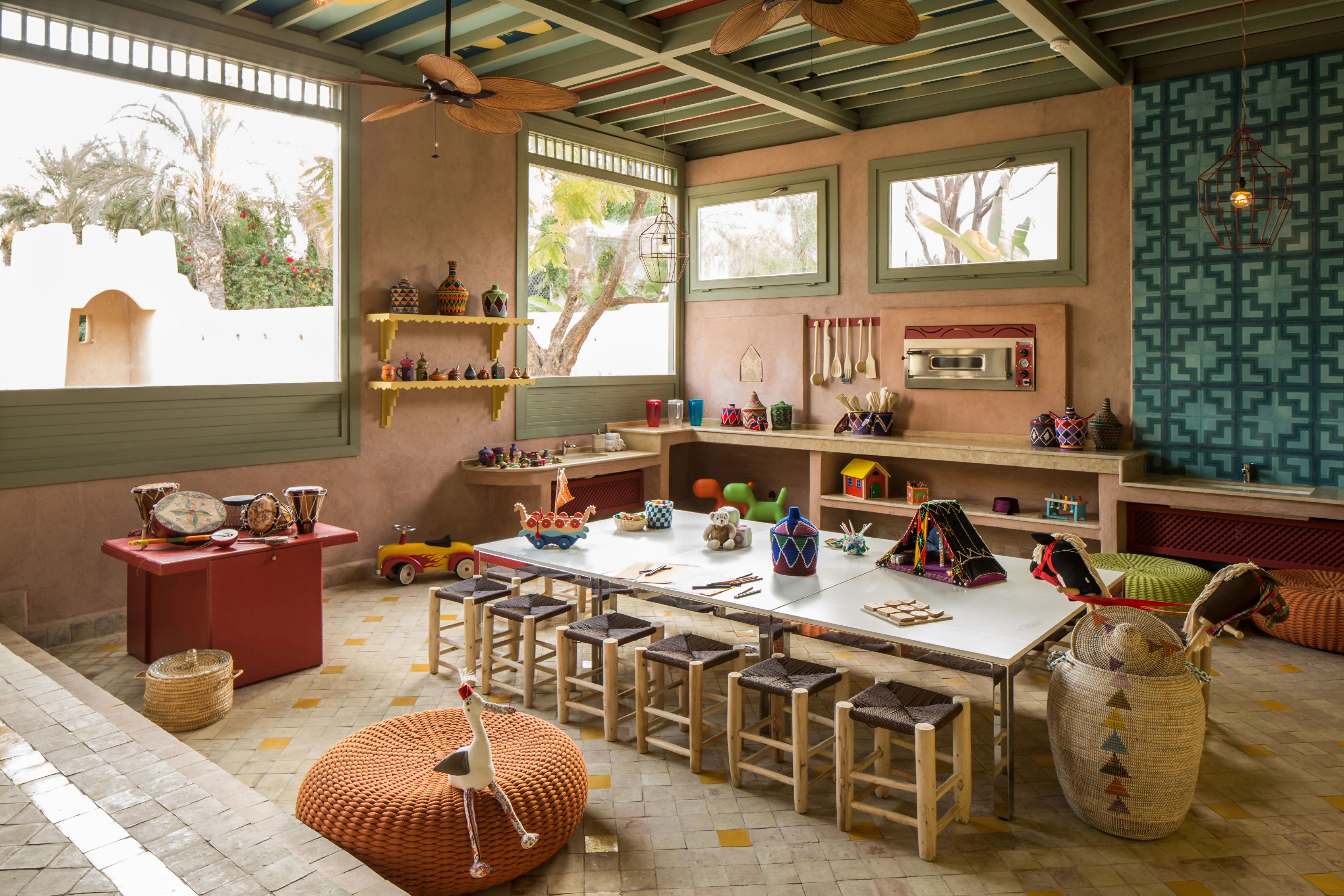
Image courtesy of the Four Seasons Marrakech
The truth: With its amenity-rich resorts, epic outdoor activities and enchanting atmosphere, Morocco is welcoming to families.
“People assume that Morocco is more of an adults-only destination, and I love to dispel that theory,” Henley said.
First, the country’s resorts cater to families with children of all ages. Hotels offer impressive kid-friendly amenities, like sprawling gardens and swimming pools. There’s a wide range of accommodations to choose from, too, including family suites, interconnected rooms and private villas with outdoor space, providing ample opportunities for little ones (and adults) to blow off steam and unwind after a day of exploration.
Plus, many resorts offer childcare services. For example, the Four Seasons Marrakech has a kids’ club that’s the star of the show — it’s a private “kasbah” in the center of the resort with craft areas, an adorable little theater with a stage area for kids to perform, a mini-kitchen and fun outdoor play area. See our roundup of the best hotels in Morocco.
“People thought I was nuts when I took my kids (and when I was pregnant) to Morocco, but it was one of my favorite trips with them,” Henley shared. “Hiking in the mountains, exploring the souk, ATVing on the beach in Essaouira, admiring camels in the street – the trip was off the charts.”
Vibrant, mesmerizing and truly unique, Morocco defies stereotypes and offers much more than meets the eye. Our advice: go now to see the magic — and disproved misconceptions — yourself.
If you’re ready to travel to Morocco, reach out to Fora to start planning your trip today. Your Fora Advisor can plan the perfect itinerary according to your travel preferences, and unlock excellent hotel perks along the way.
